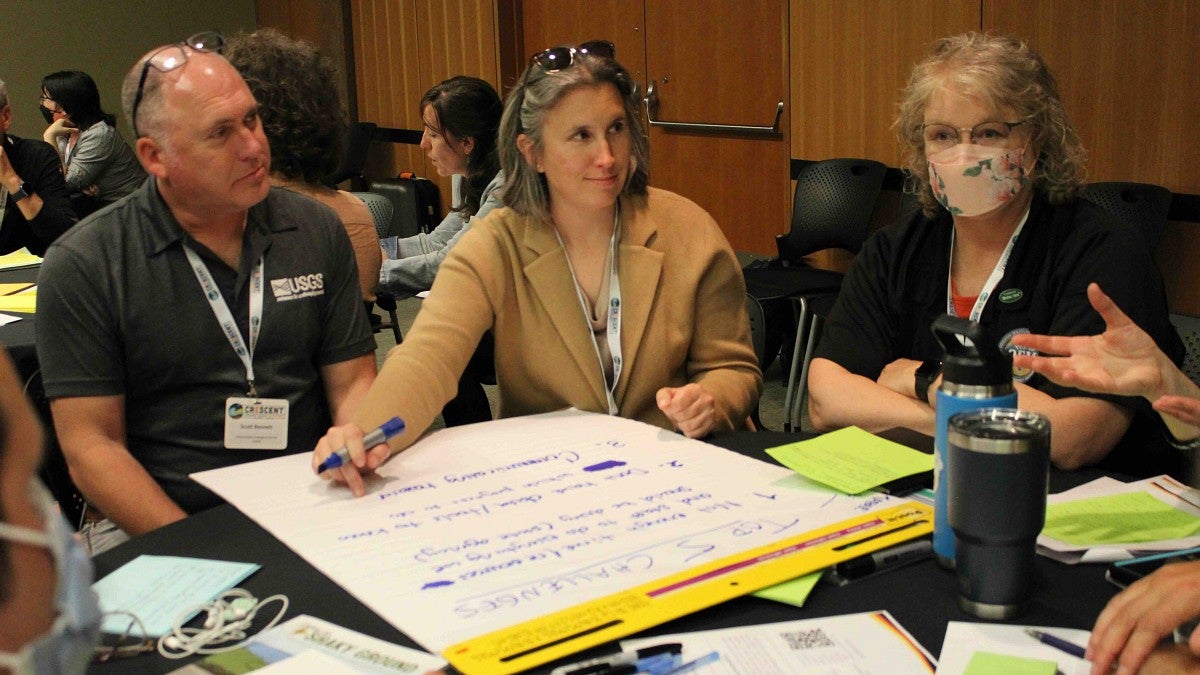
July 11, 2024 - 5:00pm
More than 100 scientists and community partners recently convened to discuss resilience and preparedness planning in a workshop hosted by the Cascadia Region Earthquake Science Center (CRESCENT), a new multi-institution earthquake research center led by the University of Oregon.
Held on June 27 in Portland, the inaugural Partnerships and Applications Workshop welcomed local, state and federal agencies; tribal organizations; emergency managers; utilities; industry; nonprofits; and educational institutions, as well as staff to Gov. Tina Kotek, Sen. Jeff Merkley and Rep. Suzanne Bonamici.
Attendees discussed the latest science and resilience planning needs of communities related to a better understanding of the Cascadia Subduction Zone.
Direct application of science research
Speakers presented on the science and resilience planning needs from the perspective of utilities and infrastructure organizations, state and federal agencies, local community efforts, and hazard communications and outreach work.
“We still have a lot to learn about the science of earthquakes and hazards in the Pacific Northwest, and the better we understand these hazards, the better we can prepare,” said UO Earth scientist and CRESCENT lead investigator Valerie Sahakian. “We’re excited to work with organizations in the region that focus on preparedness and resilience, so we can learn in what ways to collaborate, apply our science and learn what research is most beneficial to resilience efforts moving forward. This workshop gave us the opportunity to do just that.”
Hub for community efforts
The workshop focused on the challenges communities in the region face with respect to regional hazards of the Cascadia Subduction Zone. Participants identified complementary initiatives, opportunities for future collaboration, and collective needs and goals that could be addressed with CRESCENT missions or adjacent research.
“The CRESCENT Partnerships & Applications workshop provided a great opportunity for key partners across emergency management and mitigation planning at the local, state, and federal levels to come together with private partners (for example, utilities) and scientists to discuss what kind of data and resources are needed to incorporate Cascadia Subduction Zone science to practical applications,” said Hannah Rabinowitz who manages hazard mitigation for FEMA Region 10.
Collaboration and inclusivity
One workshop goal was to create an inclusive space where stakeholders across multiple sectors could work together to identify challenges and opportunities for building resilience in the region.
"I am looking forward to collaborating with CRESCENT in their mission to improve regional resilience through scientific discovery,” said Bob de Groot, engagement coordinator for the USGS ShakeAlert ® Earthquake Early Warning System. “One of my favorite takeaways from the workshop was their enthusiasm and resolve, right from the outset, to build an inclusive community that will position CRESCENT for many successes in fostering public safety and a well-rounded STEM workforce."
CRESCENT launched in October 2023 with a $15 million grant through a cooperative agreement with the National Science Foundation. CRESCENT is the first center of its kind in the nation focused on earthquakes at subduction zones, where one tectonic plate slides beneath another. The primary goals of CRESCENT are to learn more about the science underpinning seismic and cascading hazards in the Cascadia Subduction Zone and to apply science advancements to help improve community resilience preparedness.
Additional meeting resources are available on the event webpage.
The next Partnerships & Applications Workshop is tentatively scheduled for June 26 and 27, 2025.
